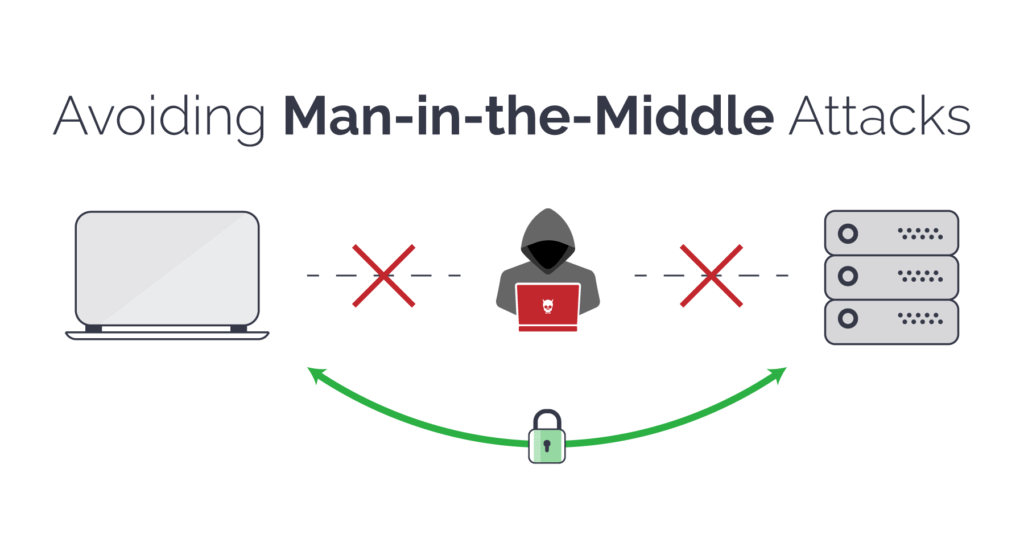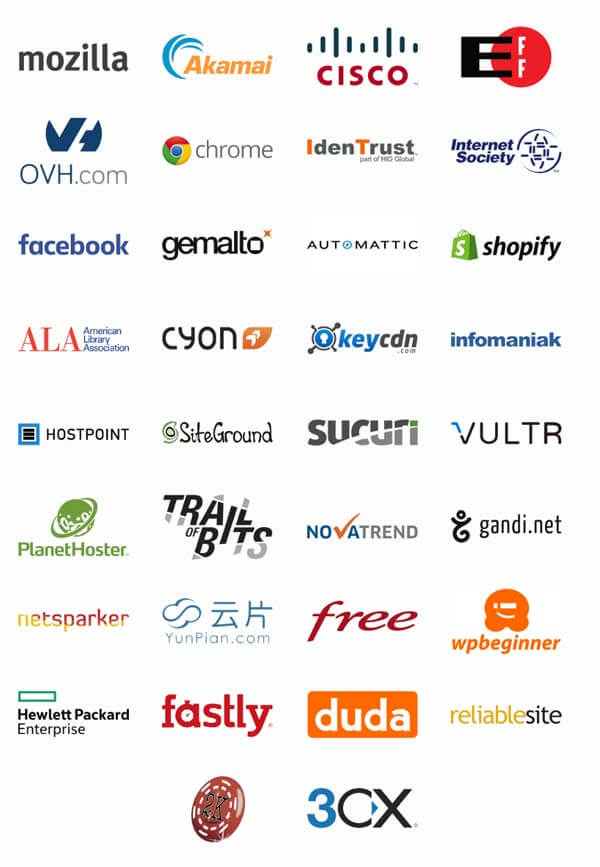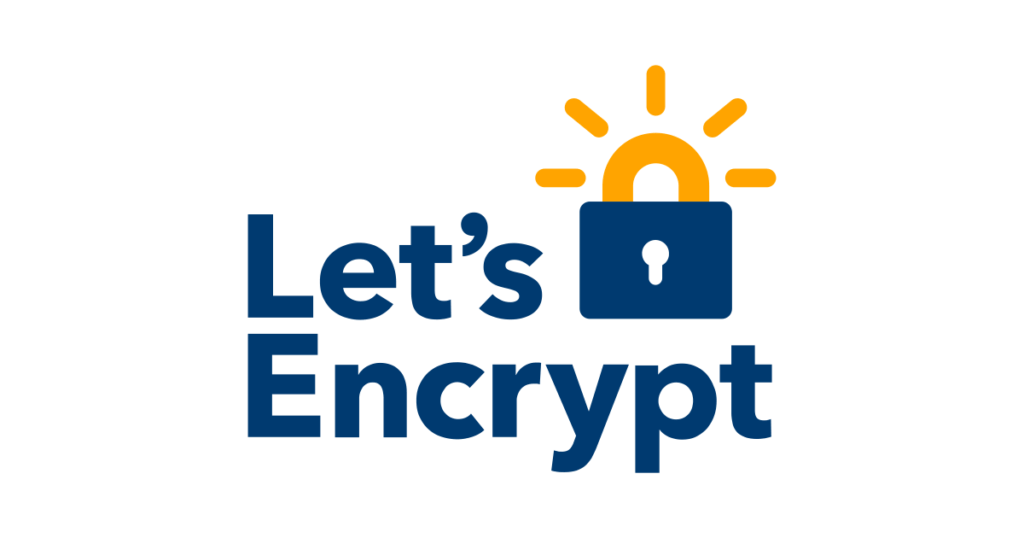Table of contents of the article:
Introduction
In the digital age, online data security is of paramount importance. SSL (Secure Sockets Layer) certificates play a crucial role in protecting information transmitted over the Internet. In this article, we'll look at the differences between the free SSL certificates provided by Let's Encrypt and the paid commercial ones, highlighting their benefits, limitations, and ideal use scenarios.
What are SSL Certificates?
Secure Sockets Layer (SSL) certificates, now commonly known as Transport Layer Security (TLS), are essential security standards in the digital world. They work like a digital passport that provides authenticity, confidentiality and integrity to online communications. These certificates are critical to internet security and are used to protect sensitive data during its transmission between two systems, preventing cybercriminals from reading and modifying any transferred information, including potentially personal data.
Cryptography and Security
SSL/TLS certificates use encryption to protect data in transit. Encryption is a process that encodes data so that it can only be read by someone who has the correct decryption key. In a typical SSL/TLS scenario, the web server has a certificate and a private key. When a user connects to the server, the user's browser and the server exchange public keys and create a secure session that ensures the privacy and integrity of the data exchanged.
Authenticity and Trust
In addition to providing encryption, SSL/TLS certificates authenticate the identity of the website. This is critical to prevent man-in-the-middle attacks, where an attacker could impersonate a website to intercept sensitive data.

An SSL/TLS certificate issued by a trusted Certificate Authority (CA) assures users that they are interacting with the legitimate website. This level of authenticity is especially important for e-commerce sites, financial institutions, and any other entity that handles sensitive data.
Let's Encrypt: Overview and Benefits
Let's Encrypt, managed by the Internet Security Research Group (ISRG), is a free, automated and open certification that has profoundly innovated the SSL certificate landscape. This initiative made SSL/TLS encryption available to anyone, democratizing online security. Among its main advantages are the ease of obtaining and automatic renewal, making it particularly suitable for small projects and personal websites.

The birth and ongoing support of Let's Encrypt was made possible thanks to the support of numerous sponsors and leading companies in the technology sector. These include notable names such as Mozilla, the Electronic Frontier Foundation (EFF), Akamai, Cisco, Google, Facebook, and a variety of other organizations that have recognized the importance of accessible and widespread encryption. This broad support has allowed Let's Encrypt to grow rapidly and become a cornerstone in the cybersecurity field.
Commercial SSL Certificates: Overview and Benefits
Commercial SSL certificates, offered for example by renowned brands such as Symantec, Comodo, DigiCert, and Thawte, are essential to guarantee the security of online communications and to build a relationship of trust between users and web platforms. These certificates are mainly divided into three categories: Domain Validated (DV), Organization Validated (OV) and Extended Validation (EV). Each type has its own peculiarities and responds to specific needs and safety levels. DV offers basic domain verification, OV adds organization validation, while EV provides the highest level of security and reliability by confirming the legal identity of the entity that owns the website.
Domain Validated (DV) Certificates
- Features and Validation Process: DV certificates are the basic level of SSL certification. Verification is limited to confirming control of the domain by the applicant. This process typically occurs via email or through a DNS record. No verification of the legal entity behind the website is necessary.
- Typical Use: DV certificates are suitable for personal websites, blogs or any online project where user trust is not a critical factor. They are quick to obtain, usually cheap, and provide a basic level of encryption.
- Advantages: Ease and speed of implementation, low cost, suitable for low-risk projects.
Organization Validated (OV) Certificates
- Features and Validation Process: OV certificates offer a higher level of security than DV. In addition to confirming control of the domain, the Certification Authority also verifies the legal, physical and operational existence of the entity requesting the certificate. This process requires a documentary verification which may include confirmation of the company's registration, its physical address and other relevant information.
- Typical Use: Ideal for businesses and organizations that want to provide their users with an added level of trust. They are often used by corporate websites, educational portals and platforms that handle sensitive, but not financial, information.
- Advantages: Greater trust for users, verification of organization identity, improved security compared to DV certificates.
Extended Validation (EV) Certificates
- Features and Validation Process: EV certificates represent the highest standard of SSL certification available. They require a rigorous validation process that includes all steps of OV verification, plus additional checks to confirm the legitimacy of the organization. The process may include verifying the entity's legal right to use the specified domain, confirming the entity's physical and legal identity, and verifying that the entity is legally operational.
- Typical Use: They are mainly used by websites that handle financial transactions, such as banks and online shops, or sites that require a high level of trust and security from users.
- Advantages: Highest level of trust and authenticity for users, prominent green bar or security indicator in browsers, optimal protection against phishing and other forms of online fraud.
General Considerations on Commercial SSL Certificates
- Insurance Guarantees and Customer Support: Many commercial SSL certificates include insurance guarantees that protect the entity in the event of problems related to the SSL certificate, such as improper issuance or encryption flaws. Additionally, they offer dedicated customer support, which can be a significant plus if you have any problems or technical questions.
- Security and Trust: The security and trust generated by commercial SSL certificates is critical for businesses looking to protect their information and that of their customers. A well-chosen SSL certificate can also have a positive impact on brand perception and consumer trust.
Technical Comparison: Let's Encrypt vs Commercial Certificates
When it comes to online security, both SSL certificates provided by Let's Encrypt and commercial ones play a vital role. Although both types of certificates employ similar encryption protocols to ensure data security, there are some significant differences in their implementation, management, and functionality that deserve deeper analysis.
Cryptography Protocols
- Let's Encrypt and Commercial Certificates: Both Let's Encrypt and commercial SSL certificates use standard encryption protocols such as TLS (Transport Layer Security) to protect your data. This includes the use of advanced algorithms and strong encryption keys to ensure that data exchanged between the web server and users' browser remains private and incomprehensible to unauthorized parties.
- Security level: The level of security offered in terms of encryption is essentially the same between Let's Encrypt and commercial SSL certificates. Both provide effective protection against eavesdropping and cyber attacks.
Duration and Renewal of the Certificate
- Let's Encrypt: Let's Encrypt certificates have a relatively short lifespan of 90 days. This approach was chosen to promote better security through frequent automatic renewals, reducing the risk of compromised or obsolete certificates remaining in use.
- Commercial Certificates: Commercial SSL certificates offer a longer lifespan, typically 1 to 2 years. This reduces the need for frequent renewals, but requires administrators to remember to manually renew them to avoid service interruptions.
Wildcard and Multi-Domain options
- Let's Encrypt: While Let's Encrypt offers wildcard certificates, which cover all subdomains of a root domain, it does not provide options for multi-domain certificates (also known as SAN or UCC certificates).
- Commercial Certificates: Commercial SSL certificates often include wildcard and multi-domain options. This makes them ideal for organizations that manage multiple websites or subdomains, as it allows them to secure multiple domains with a single certificate.
Support and Additional Services
- Customer Support: While Let's Encrypt primarily relies on online documentation and the community for support, commercial certificate providers usually offer dedicated customer support, which can be crucial in emergency situations or for complex setups.
- Insurance Guarantees: Many commercial SSL certificates include insurance guarantees that protect the entity in case of problems related to the SSL certificate. Let's Encrypt does not offer this type of insurance protection.
Applicability and Choice
- Choose Let's Encrypt: Let's Encrypt is an ideal solution for smaller websites, personal blogs, or projects with limited budgets. It offers a fast, automated and cost-free solution to implement SSL encryption.
- Choose Commercial Certificates: Commercial certificates are best suited for large businesses, e-commerce, and websites that require a higher level of trust and security. Their ability to cover multiple domains, dedicated customer support and insurance guarantees offer significant added value for such entities.
Use case: When to choose Let's Encrypt and when a commercial certificate
The choice between Let's Encrypt and a commercial SSL certificate depends largely on the nature of the website, specific security needs, and desired user perception. Let's Encrypt, with its ease of obtaining and automatic renewal, is perfectly suited for personal websites, blogs and low-budget projects. This option is ideal for those looking for a basic encryption solution at no additional cost, especially beneficial for independent developers, small bloggers, or informational websites that do not handle financial transactions or sensitive user data.
On the other hand, for businesses, especially those dealing with financial transactions or dealing with sensitive customer data, a commercial SSL certificate becomes a more suitable choice. These certificates not only offer a higher level of security and trust, but also include additional services such as customer support, insurance guarantees and the ability to manage multiple domains or subdomains. These features are essential for companies that want to ensure maximum trust from their customers and ensure protection against various cyber threats.
Additionally, for organizations that want to communicate an image of high reliability and security, such as banks, online stores and large portals, commercial SSL certificates, especially those with Extended Validation (EV), provide a green bar or other visual indicators in browser. These visual cues serve to reassure users that their connection is secure and that the entity they are interacting with has been rigorously verified.
Conclusions
The decision to opt for a Let's Encrypt SSL certificate or a commercial one should be based on a careful evaluation of the specific security, reliability and budget needs of your website or organization. Let's Encrypt represents an ideal solution for small projects or for websites that do not process particularly sensitive data, offering easy implementation and management. On the other hand, commercial SSL certificates are particularly suitable for businesses and e-commerce sites that require a higher level of security and trust from users, as well as additional services such as customer support and insurance guarantees.
We understand that navigating the complex world of SSL certificates can be challenging, especially when it comes to choosing the best solution for your specific use case. For this reason, we are here to help you. If you need advice on purchasing or installing an SSL certificate, our team of experts is at your disposal. Contact us to discuss your needs and to find the right SSL certification solution to ensure the security and reliability of your website. Our experience in the Linux hosting and systems sector, together with our specialization in CMS and e-commerce platforms, allows us to offer you personalized consultancy that is perfectly suited to your needs.
Making the right choice in terms of SSL certificate is a crucial step towards building a secure and reliable website. Please feel free to contact us to ensure your decision is the best one for your online business.
